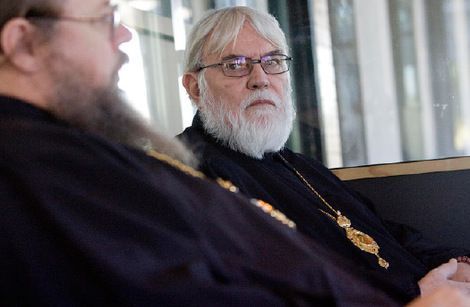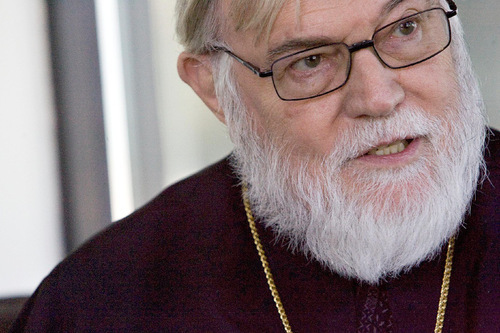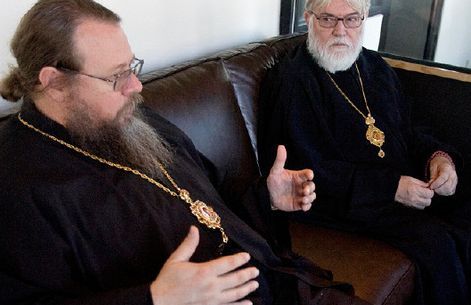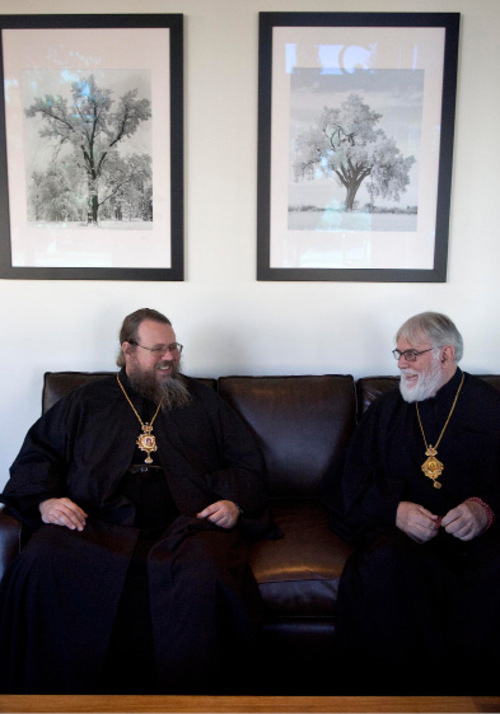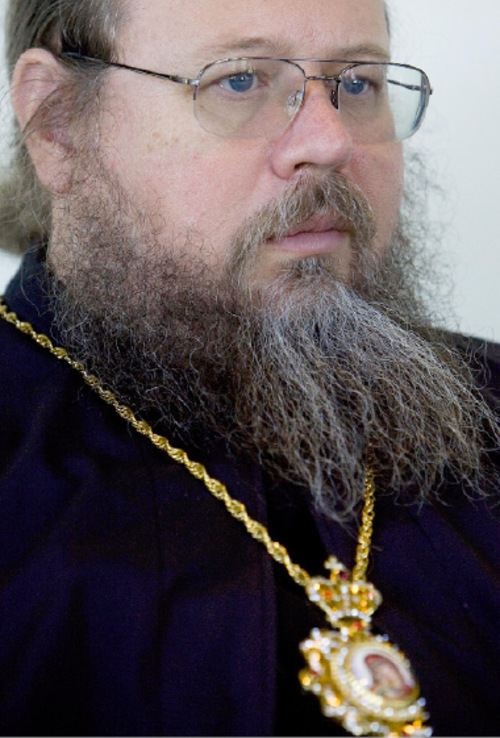This is an archived article that was published on sltrib.com in 2010, and information in the article may be outdated. It is provided only for personal research purposes and may not be reprinted.
To Bishop Jonah and Archbishop Nathaniel, top leaders in the Orthodox Church in America (OCA), the unity of all U.S. wings of Eastern Orthodoxy is on the horizon.
In fact, a single church is likely to come sooner than anyone expected, the two said during a Salt Lake City visit last week.
"We have always been hopeful," said Nathaniel, archbishop of the Romanian Orthodox Episcopate of America and a member of the OCA's synod of bishops. "But we are a little surprised that it is moving as quickly as it is."
The two holy men in black were in Utah for the 23rd annual meeting of Orthodox Christian Laity, a group committed to unite the Russian, Greek, Romanian, Serbian and other Orthodox believers into a single church, led by one bishop. Currently, each U.S. ethnic church looks to its country of origin and the patriarchs there as its spiritual head rather than to the country where they live. That is not the way the rest of the world does it.
"Our dogma, sacraments and theology are all the same, only the administration is different" Nathaniel said. "It is our fervent desire for administrative unity."
They feel the time for worshipping together has arrived.
"All the Old World patriarchs now have endorsed [the idea of a single church]," said Jonah, OCA metropolitan of all America and Canada. "They told the Americans, 'It's up to you to figure out how to do it.' "
So last year, America's 66 Eastern Orthodox bishops met to create committees that will hammer out a plan, which they hope to present to the entire church at a "Great Council" of all Orthodox bishops in Istanbul in 2013.
While there may always be ethnic parishes, Nathaniel said, eventually there won't be any ethnic dioceses or bishops. Every diocese could have a variety of churches, answering to the same bishop. And all would look to an American patriarch, who would oversee the multicultural, multi-language, multi-ethnic body.
The two national leaders had no comment on the recent announcement of the separation of the Salt Lake Valley's Greek Orthodox parish into two, saying that was a local and quite different issue.
For Jonah and Nathaniel, the move to unify is urgent.
Neither was born in the faith, but rather converted as adults. Both are passionate about their faith.
Jonah was reared an Episcopalian, but discovered the historic faith in 1978 while studying at the University of California at San Diego.
"I fell in love with the tradition and liturgy and integrated nature of Orthodoxy," Jonah said.
Later, Jonah, whose given name was James Paffhausen, transferred to the University of California at Santa Cruz, where he helped establish an Orthodox Christian Fellowship. After college, Jonah studied at St. Vladimir's Orthodox Theological Seminary in New York. After earning a master of divinity degree in 1985 and a master of theology in dogmatics in 1988, Jonah spent time in Russia, where he became a tonsured monk. He then returned to California and helped found a monastery there, becoming its first abbot. Later, he was named the bishop of Fort Worth, Texas.
Two years ago, Jonah was elected archbishop of Washington and New York and metropolitan of All America and Canada by his fellow bishops.
Nathaniel, too, started out in another faith — the Romanian-Greek Catholic Church. He was ordained a Catholic priest in 1966, but, a year later, moved into Orthodoxy. After that, he ministered in Pennsylvania, New York and Ohio before being named ruling hierarch of The Romanian Orthodox Episcopate of America in 1984. A decade later, he was elevated to archbishop.
The experience of these two men parallels many others in the Orthodox Church of America, a separate entity created among Russian immigrants by the patriarch of Moscow in the 1970s.
Today, about 80 percent of OCA bishops are converts as are 70 percent of the priests and 50 percent of the members.
"Missionary outreach is America's core," Jonah said. "It is the essence of who we are."


